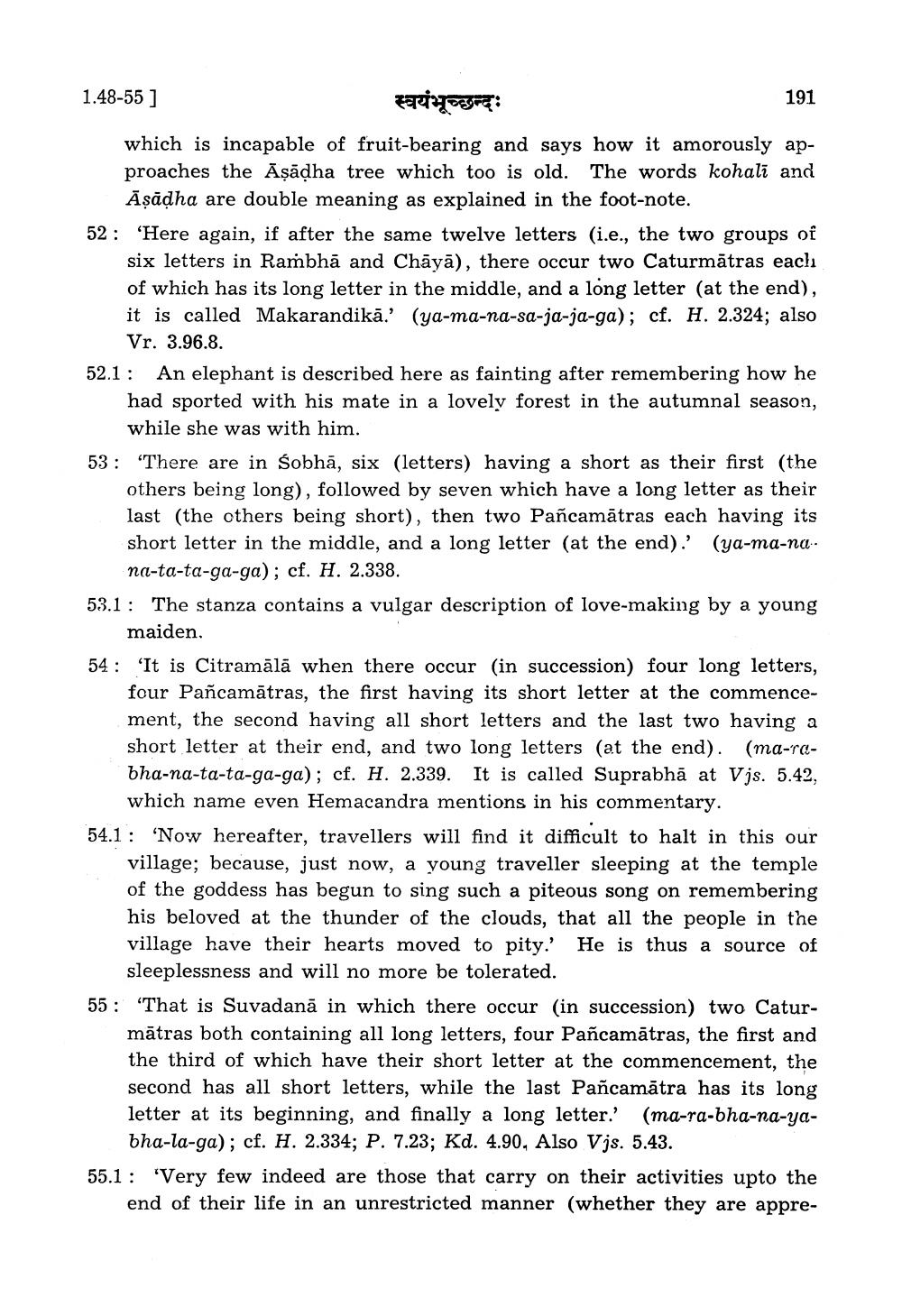________________
1.48-55 ]
स्वयंभूच्छन्दः
191
which is incapable of fruit-bearing and says how it amorously approaches the Aşādha tree which too is old. The words kohali and
Ā§ādha are double meaning as explained in the foot-note. 52 : 'Here again, if after the same twelve letters (i.e., the two groups of
six letters in Rambhā and Chāyā), there occur two Caturmātras each of which has its long letter in the middle, and a long letter (at the end), it is called Makarandikā.' (ya-ma-na-sa-ja-ja-ga); cf. H. 2.324; also
Vr. 3.96.8. 52.1: An elephant is described here as fainting after remembering how he
had sported with his mate in a lovely forest in the autumnal season,
while she was with him. 53: "There are in Sobhā, six (letters) having a short as their first (the
others being long), followed by seven which have a long letter as their last (the others being short), then two Pañcamātras each having its short letter in the middle, and a long letter (at the end), (ya-ma-na
na-ta-ta-ga-ga); cf. H. 2.338. 53.1 : The stanza contains a vulgar description of love-making by a young
maiden 54: 'It is Citramālā when there occur (in succession) four long letters,
four Pañcamātras, the first having its short letter at the commencement, the second having all short letters and the last two having a short letter at their end, and two long letters (at the end). (ma-rabha-na-ta-ta-ga-ga); cf. H. 2.339. It is called Suprabhā at Vjs. 5.42,
which name even Hemacandra mentions in his commentary. 54.1 : 'Now hereafter, travellers will find it difficult to halt in this our
village; because, just now, a young traveller sleeping at the temple of the goddess has begun to sing such a piteous song on remembering his beloved at the thunder of the clouds, that all the people in the village have their hearts moved to pity. He is thus a source of
sleeplessness and will no more be tolerated. 55: "That is Suvadanā in which there occur in succession) two Catur
mātras both containing all long letters, four Pañcamātras, the first and the third of which have their short letter at the commencement, the second has all short letters, while the last Pañcamātra has its long letter at its beginning, and finally a long letter. (ma-ra-bha-na-ya
bha-la-ga); cf. H. 2.334; P. 7.23; Kd. 4.90. Also Vjs. 5.43. 55.1: Very few indeed are those that carry on their activities upto the
end of their life in an unrestricted manner (whether they are appre




